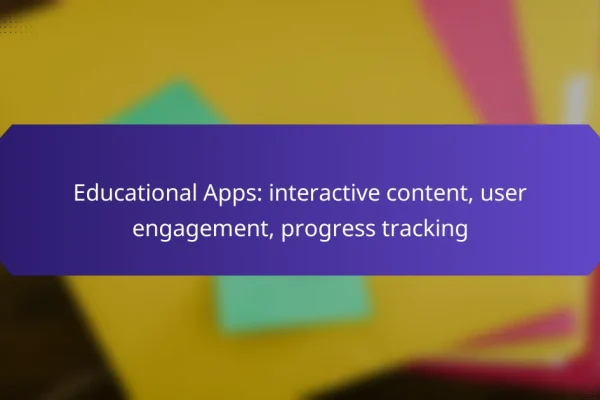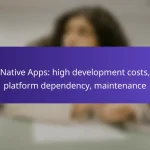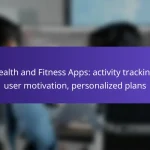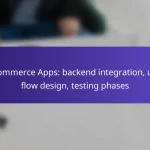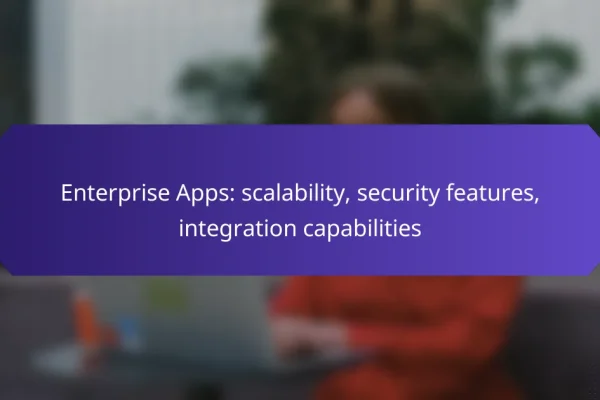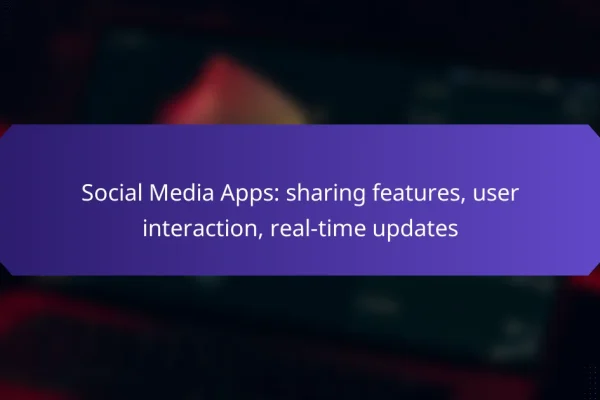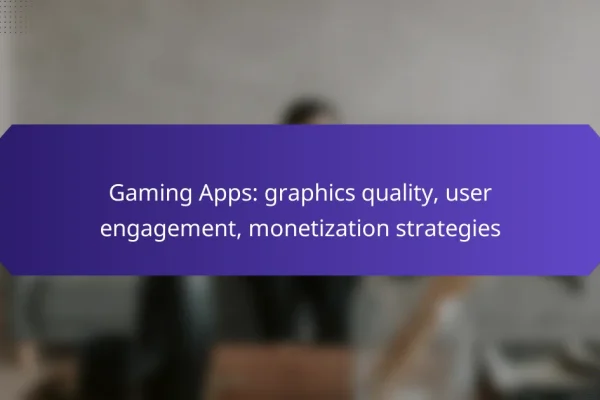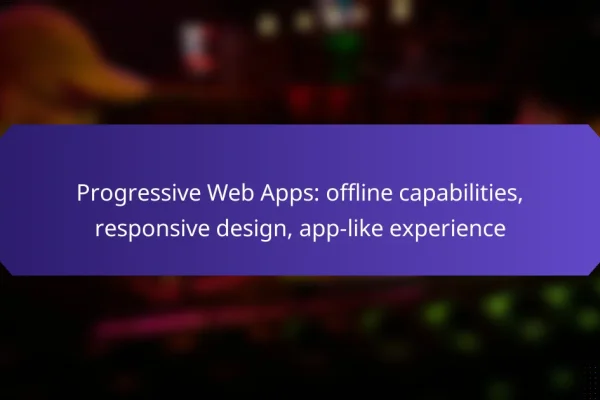What are the key types of mobile app development?
The key types of mobile app development include native, hybrid, and web app development. Each type has distinct characteristics, advantages, and considerations that can impact the overall user experience and development process.
Native app development
Native app development involves creating applications specifically for a single platform, such as iOS or Android, using platform-specific programming languages like Swift or Kotlin. This approach allows developers to leverage the full capabilities of the device, resulting in high performance and a seamless user experience.
However, the trade-off is that native apps require separate codebases for each platform, which can increase development time and costs. Businesses should consider their target audience and budget when deciding if native development is the right choice.
Hybrid app development
Hybrid app development combines elements of both native and web applications, allowing developers to write a single codebase that can run on multiple platforms. This is typically achieved using frameworks like React Native or Flutter, which enable a more efficient development process.
While hybrid apps can save time and resources, they may not perform as well as native apps in terms of speed and access to device features. Companies should weigh the benefits of faster deployment against potential performance limitations when choosing hybrid development.
Web app development
Web app development focuses on creating applications that run in a web browser, using standard web technologies like HTML, CSS, and JavaScript. These apps are accessible across various devices without the need for installation, making them highly versatile.
However, web apps may lack some functionalities and performance optimizations that native apps offer. They are best suited for projects with limited budgets or those that require rapid deployment. Businesses should assess their needs and user expectations to determine if a web app is the right fit.
What factors should you consider when choosing a mobile app development type?
When selecting a mobile app development type, consider your target audience, budget constraints, and time to market. Each of these factors plays a crucial role in determining the most suitable approach for your app’s success.
Target audience
Your target audience significantly influences the mobile app development type you choose. Understanding their preferences, behaviors, and device usage patterns can guide you in selecting between native, hybrid, or web apps. For instance, if your audience primarily uses iOS devices, a native app may provide the best user experience.
Consider conducting market research or surveys to gather insights about your audience. This data can help you tailor your app’s features and functionalities to meet their specific needs, ensuring higher engagement and satisfaction.
Budget constraints
Budget constraints are a critical factor in deciding on a mobile app development type. Native apps typically require a larger investment due to the need for separate development for each platform, while hybrid and web apps can be more cost-effective as they allow for a single codebase across multiple platforms.
Establish a clear budget before starting the development process. Factor in not just initial development costs, but also ongoing maintenance and updates. This can help you avoid overspending and ensure that you allocate resources effectively throughout the app’s lifecycle.
Time to market
Time to market is essential, especially in fast-paced industries where being first can provide a competitive edge. If you need to launch quickly, hybrid or web apps may be the best choice, as they can often be developed faster than native apps.
Assess your project timeline and deadlines carefully. If rapid deployment is a priority, consider using frameworks that facilitate quicker development cycles. However, be mindful that faster development may sometimes compromise features or performance, so find a balance that meets your goals.
How does native app development benefit businesses in the UK?
Native app development offers significant advantages for businesses in the UK, including enhanced performance, access to device features, and improved user experience. These benefits can lead to higher customer satisfaction and increased engagement, making native apps a strong choice for companies looking to invest in mobile technology.
High performance
Native apps are designed specifically for a particular operating system, which allows them to run more efficiently than cross-platform alternatives. This results in faster load times and smoother interactions, crucial for retaining users. For example, native apps can achieve response times in the low tens of milliseconds, ensuring that users experience minimal lag.
High performance is particularly important in competitive markets, where users expect seamless experiences. Businesses should consider investing in native development to meet these expectations and enhance their app’s overall performance.
Access to device features
Native app development provides full access to device features such as the camera, GPS, and push notifications. This integration allows businesses to create more interactive and engaging applications that leverage these capabilities effectively. For instance, a native app can utilize location services to offer personalized content or promotions based on a user’s whereabouts.
By tapping into these device features, businesses can enhance functionality and create unique user experiences that set their apps apart from competitors. This access is a key consideration when deciding on the app development approach.
Better user experience
Native apps typically offer a better user experience due to their adherence to platform-specific design guidelines. This results in a familiar interface for users, making navigation intuitive and straightforward. A well-designed native app can lead to higher user retention rates, as customers are more likely to return to an app that feels natural to use.
Moreover, native apps can provide offline functionality, allowing users to access certain features without an internet connection. This capability can significantly enhance user satisfaction, especially in regions with inconsistent connectivity, making native development a wise choice for businesses targeting the UK market.
What are the advantages of hybrid app development?
Hybrid app development offers a blend of native and web app features, allowing developers to create applications that work across multiple platforms with a single codebase. This approach can lead to significant benefits in terms of cost, time, and resource efficiency.
Cross-platform compatibility
One of the main advantages of hybrid app development is its cross-platform compatibility. Developers can write code once and deploy it on various operating systems, such as iOS and Android, which simplifies the development process. This compatibility reduces the need for separate teams to manage different versions of the app.
For businesses, this means reaching a wider audience without the overhead of maintaining multiple codebases. Users on different devices can enjoy a consistent experience, which can enhance brand loyalty.
Reduced development costs
Hybrid app development can significantly lower development costs compared to building separate native apps. Since the same codebase is used for multiple platforms, businesses can save on labor and time, often reducing costs by 30-50%. This is particularly beneficial for startups and small businesses with limited budgets.
Additionally, fewer resources are needed for maintenance and updates, which can further decrease long-term expenses. Companies can allocate their budget more effectively, focusing on marketing and user acquisition instead.
Faster updates
With hybrid apps, updates can be rolled out more quickly and efficiently. Since there is a single codebase, developers can implement changes and enhancements without the need to modify multiple versions of the app. This can lead to faster deployment of new features and bug fixes.
For example, if a security vulnerability is discovered, a hybrid app can be updated across all platforms in a matter of hours, rather than days or weeks. This agility helps maintain user trust and satisfaction, as users benefit from the latest improvements without delay.
What are the limitations of web app development?
Web app development has several limitations that can impact user experience and functionality. Key issues include limited offline capabilities, performance challenges, and restricted access to device features.
Limited offline capabilities
Web apps typically require a stable internet connection to function effectively. When users are offline, the app may not be accessible or may offer only limited functionality, which can hinder usability in areas with poor connectivity.
To mitigate this, developers can implement service workers that allow for some offline capabilities, but this often requires careful planning and may not fully replicate the experience of native apps.
Performance issues
Web apps can suffer from performance issues, especially when compared to native applications. They often load slower and may experience lag during interactions due to reliance on web technologies and browser performance.
Optimizing performance may involve minimizing file sizes, reducing server requests, and leveraging caching strategies, but even with these measures, web apps may not match the speed of native solutions.
Device feature access
Web apps have limited access to device features such as the camera, GPS, and push notifications. This can restrict the functionality that developers can offer, making it challenging to create rich, interactive experiences.
While modern web standards have improved access to some features, many device capabilities remain unavailable or require user permissions that can deter engagement. Developers should carefully assess which features are essential for their app’s success and consider native development if extensive device integration is needed.
